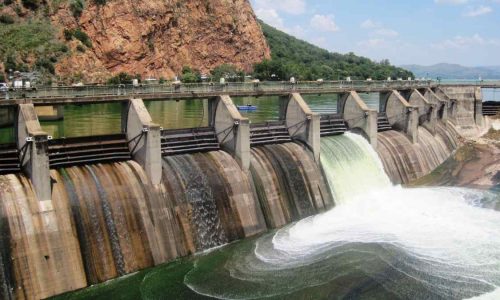The global demand for nickel has burgeoned with the rise of electric cars, provoking Indonesian President Joko Widodo to ban export of nickel ores in 2020 as part of the attempt to increase the nation’s revenue through export of only processed nickel.
Today, nickel downstreaming has become an important issue in the country amid the hurly-burly of the 2024 general elections. The ban on nickel ore exports and increased domestic processing have raised nickel export values from USD 4 billion in 2017 to USD 34 billion in 2022, or an increase by 750 percent. However, claims of positive impacts from nickel downstreaming often overlook its effects on the environment and public health.
A new study on the health and economic impacts of the nickel processing drive from the Centre for Research on Energy and Clean Air (CREA) and the Center of Economic and Law Studies (CELIOS) has debunked the supposed economic gains. The study, titled ‘Debunking the Value-Added Myth in Nickel Downstream Industry’, is a deep dive into the economic, ecological, and public health impacts of the industry, with a focus on the top three locations for nickel smelting operations: the provinces of Central Sulawesi, Southeast Sulawesi and North Maluku.
The nickel industry’s current growth pathway in the focus regions would contribute USD 4 billion (IDR 62.8 trillion) in the fifth year of construction. From then on, the industry’s negative impacts on the local ecology begin to affect the total economic output, becoming more drastic after the eighth year.
“Despite the promised future and opportunities that would be seized through the country’s massive nickel industry, its impacts on the country’s population, especially its health and source of livelihoods, put them at great risk,” Executive Director of Celios, Bhima Yudhistira Adhinegara, said in a statement on Wednesday, February 21, 2024, while summarizing the results of the study.
Environmental degradation is one of the impacts arising from nickel processing operations. The decline in water, soil, and air quality leads to a decrease in the livelihoods of fishermen and farmers in the vicinity of industrial areas. Projected in the report is that over the next 15 years, farmers and fishermen will incur losses of up to USD 234.84 million..
Additionally, the myth regarding how nickel industry projects can enhance the welfare of local residents through employment absorption and wage increases is also refuted in this study. The increase in employment absorption will only occur in the third year during the factory construction phase, then it will tend to decline until the fifteenth year, as the negative impacts of the presence of the nickel industry affect job absorption in other sectors, particularly agriculture and fisheries.
This is attributed to the presence of operational Captive Coal Power Plants, which are inherent to industrial areas, particularly those involved in the nickel smelter industry. Processing low-grade nickel ores is energy-intensive, and Indonesia relies on coal power. Of the 10.8 GW operating capacity of all captive coal power in Indonesia, over 75 percent (8.2 GW) is dedicated to metal processing. Of this, nickel alone consumes three-fourths or about 6.1 GW.
“The industry’s reliance on coal power would lead to at least 3,800 annual deaths in the next two years, and nearly 5,000 by the end of the decade, causing an economic burden of USD 2.63 billion and USD 3.42 billion per year in the same period,” said Katherine Hasan, Analyst at CREA.
China is currently the largest investor in captive coal power in Indonesia, with more than 70 percent ownership held by 14 private and state-owned metals processing and mining companies.
“China’s continued investment in coal power has played a significant role in undermining Indonesia’s emission reduction targets,” said Lauri Myllyvirta, Lead Analyst at CREA. “Despite China’s 2021 pledge to stop building coal power plants overseas, investments in coal power in Indonesia have continued, and all of the captive coal power plants with Chinese investment are based in Indonesia’s power metals and mining industrial parks,” he added.
The researchers recommend policies to power nickel smelters with clean energy instead of coal power, strengthened emissions and environmental standards and disclosure, as well as increased royalty payments. These measures would reduce the negative public health and environmental impacts and increase the national economic benefits from Indonesia’s rich nickel deposits.









